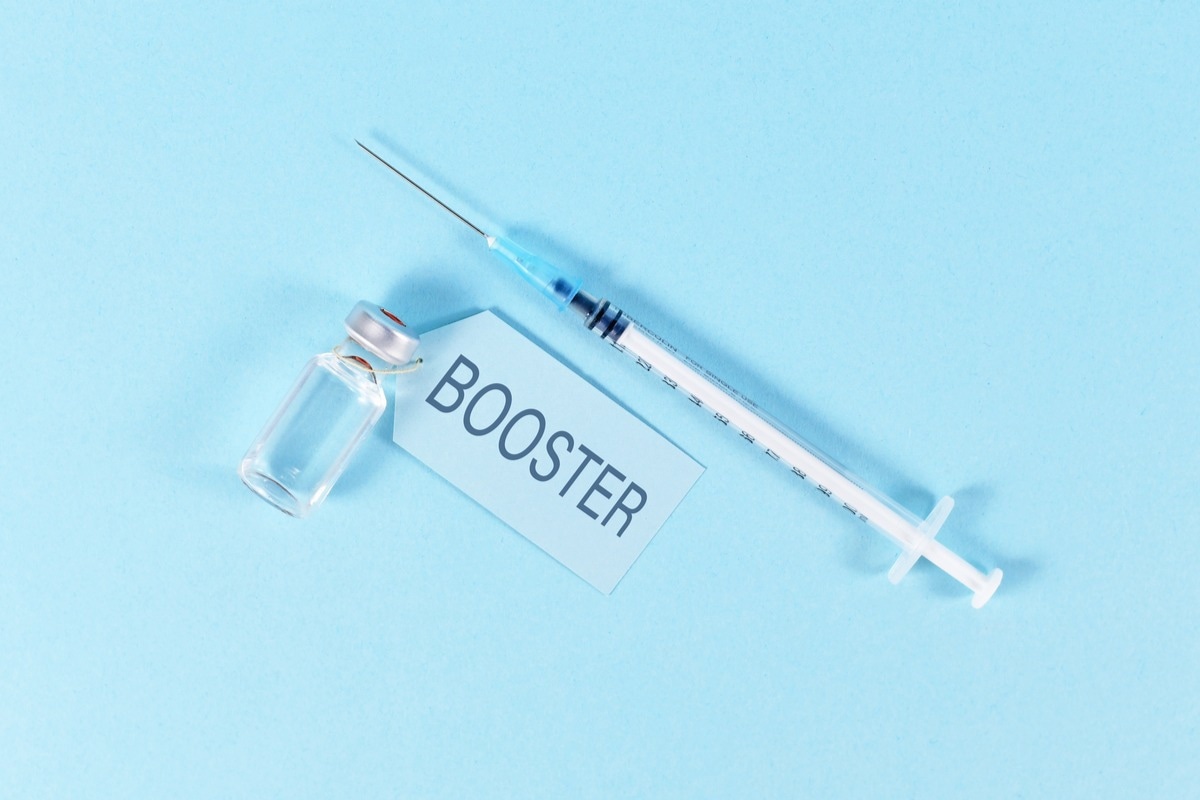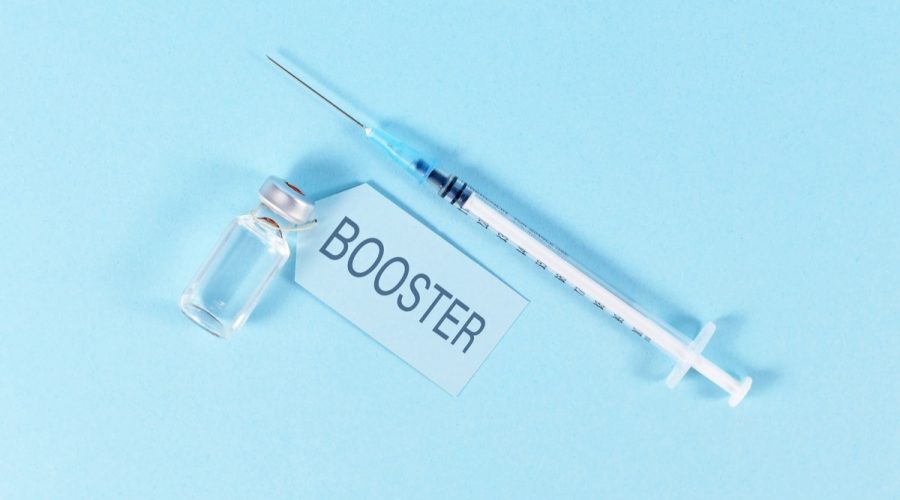The impact of pre-existing immunity on mRNA booster doses of BNT162b2 and mRNA-1273 vaccines against SARS-CoV-2
In a recent study posted to the bioRxiv* preprint server, researchers assessed the impact of pre-existing immunity on messenger ribonucleic acid (mRNA) booster doses of BNT162b2 and mRNA-1273 vaccines against severe acute respiratory syndrome coronavirus 2 (SARS-CoV-2).

Background
Messenger ribonucleic acid (mRNA) vaccines have been reported to be highly effective in preventing coronavirus disease 2019 (COVID-19) severity but breakthrough infection cases, emerging SARS-CoV-2 strains, and waning of antibody titers warrant the need for booster vaccinations. Booster mRNA vaccinations have been implemented widely; however, the extent of influence on mRNA booster efficacy by existing/previous immunity is unclear.
About the study
In the present study, researchers assessed the impact of pre-booster anti-SARS-CoV-2 immunity (by vaccination or natural SARS-CoV-2 infection) on BNT162b2 and mRNA-1273 booster doses for COVID-19.
The study cohort comprised individuals who had received prime BNT162b2 or mRNA-1273 vaccination. First, the team investigated the effect of pre-existing immunity levels against the SARS-CoV-2 spike (S) antigen on the efficacy of mRNA booster vaccinations among SARS-CoV-2-negative individuals who had received single mRNA vaccinations previously.
The antibody titers among singly vaccinated and previously SARS-CoV-2-exposed individuals were also assessed. Further, passive immunization analyses were performed to understand the impact of seropositivity on the mRNA booster immunogenicity. After three weeks of immunization, plasma cells were quantified by enzyme-linked immune absorbent spot (ELISPOT)-based assays.
In addition to the antibody titers, the pre-boost, and the post-boost antibody titers, the cluster of differentiation 8 (CD8) T lymphocyte counts were also compared. The enzyme-linked immunosorbent assays (ELISA) were performed to distinguish between antibodies derived from mice and humans. To further evaluate seropositivity effects on mRNA boosting efficacy, sera from five donor individuals (pre-vaccination vs. post-vaccination) were transferred into C57BL/6 mice.
The mice also received mRNA prime SARS-CoV-2 ancestral strain vaccination the following day and a booster mRNA ancestral strain or Omicron strain vaccine dose after three weeks. In addition, after two weeks of the initial mRNA vaccination in mice, sera previously harvested in C57BL/6 mice were transferred to BALB/c mice. Antibodies from C57BL/6 mice and the BALB/c mice contained the immunoglobulin G (IgG)[b] allele and IgG[a] alleles, respectively.
Further, K18- hACE2 (host angiotensin-converting enzyme 2) mice were primed with an ancestral strain vaccine or an Omicron strain vaccine. After two weeks of prime vaccination, the mice were intranasally inoculated with 5×104 plaque-forming units (PFU) of Omicron. To investigate if seropositivity to SARS-CoV-2 antigens encoded by the mRNA vaccines could limit in situ antigen expression at the vaccination site after mRNA vaccination, mRNA-LNP luciferase (and Ad5-luciferase for comparison) vaccine platforms were used, which expressed the same antigen.
Results
Among the study participants who demonstrated the lowest S-specific pre-boost antibody titers, the fold increases in S-specific post-boost antibody titers were the highest. Similar trends were observed among doubly vaccinated individuals. Robust antibody responses were observed among all five donor individuals post double mRNA vaccination.
In addition, SARS-COV-2 S-specific antibodies were detected among all mice for three weeks. Of interest, mice to which pre-vaccination human sera were transferred demonstrated robust humoral immune responses post mRNA vaccination. On the other hand, mice who were transferred post-vaccination human sera demonstrated a substantial impairment in the humoral immune responses.
Mechanistic analyses performed using the C57BL/6 mice and the BALB/c mice models showed that previous (prime vaccination or natural SARS-CoV-2 infection induced) humoral antibodies substantially abrogated in situ antigen expression and de novo priming of B lymphocyte (but not T lymphocyte) responses after BNT162b2 or mRNA-1273 vaccination. However, the CD8 T lymphocyte counts did not substantially differ pre- and post-booster vaccination.
In the ELISPOT assays, the vaccine-induced plasma cell counts decreased by 10-fold among mice to which immune sera were transferred with no differences in the T lymphocyte-mediated immune responses. The mRNA-luciferase and Ad5-luciferase analyses showed that mice with prior mRNA-LNP immunization demonstrated lesser antigen expression or more rapid antigen clearance (irrespective of the vaccine platform utilized) on re-administering mRNA-LNP at the immunization site (quadriceps muscle). This finding was most prominent in the hyperacute stage (at six hours).
The relative supremacy of the updated (Omicron strain) vaccine over the original (ancestral strain) vaccine depended on the individual’s serostatus, i.e., Omicron vaccines conferred an immunological advantage compared to ancestral vaccines among seronegative hosts (who received single prime vaccination). Prime Omicron vaccine induced 19.6-fold higher neutralizing antibody titers against the Omicron strain relative to the prime ancestral strain vaccination.
Conclusion
Overall, the study findings showed that lower pre-boost antibody titers were associated with a greater increase in post-boost antibody titers, indicating that pre-booster humoral immunity induced by vaccination or prior SARS-CoV-2 infection dictates mRNA booster immunogenicity. Further, updated (Omicron) COVID-19 vaccines confer better immune protection than the original (ancestral) COVID-19 vaccines.
*Important notice
bioRxiv publishes preliminary scientific reports that are not peer-reviewed and, therefore, should not be regarded as conclusive, guide clinical practice/health-related behavior, or treated as established information.
- Dangi, T. et al. (2022) "Pre-existing immunity modulates responses to mRNA boosters". bioRxiv. doi: 10.1101/2022.06.27.497248. https://www.biorxiv.org/content/10.1101/2022.06.27.497248v1
Posted in: Medical Science News | Medical Research News | Disease/Infection News
Tags: Allele, Angiotensin, Angiotensin-Converting Enzyme 2, Antibodies, Antibody, Antigen, B Lymphocyte, Cell, Coronavirus, Coronavirus Disease COVID-19, covid-19, Efficacy, ELISA, Enzyme, immunity, Immunization, Immunoglobulin, Luciferase, Lymphocyte, Muscle, Omicron, Quadriceps, Respiratory, Ribonucleic Acid, SARS, SARS-CoV-2, Severe Acute Respiratory, Severe Acute Respiratory Syndrome, Syndrome, T Lymphocyte, Vaccine

Written by
Pooja Toshniwal Paharia
Dr. based clinical-radiological diagnosis and management of oral lesions and conditions and associated maxillofacial disorders.
Source: Read Full Article
